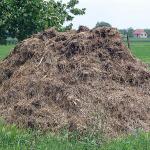Join Cameron English and Dr. Chuck Dinerstein on Episode 110 of the Science Dispatch podcast as they discuss:
Pesticides
Many consumers are committed to organic products for reasons that are more emotional than logical.
Join Cameron English and Dr. Chuck Dinerstein on Episode 73 of the Science Dispatch podcast as they explore the link between pesticides, Parkinson's and genetics:
Join host Cameron English, Dr. Chuck Dinerstein and Dr. Josh Bloom as they break down these stories on Episode 60 of the Science Dispatch podcast:
Pesticides used in agriculture have long been the subject of controversy and misinformation – and attracted the attention of regulators.
Mainstream science reporting is generally awful.
The state of New York is on the brink of a big mistake by banning a pesticide that is critical for many farmers.
During his long-overdue testimony before the House Committee on Agriculture in April, EPA Administrator Michael Regan complained about anti-pesticide groups tying up his Agency’s resources
The first Earth Day celebration, a nationwide environmental teach-in held in 1970, was the brainchild of Democratic Senator Gaylord Nelson of Wisconsin, who was interested in environmental issues.
As I discussed in Part 1, many Americans have begun to seek “authenticity” in many aspects of their lives. There’s nothing wrong with that unless in the process they are misled by special interests’ false claims that cause them to be endange












